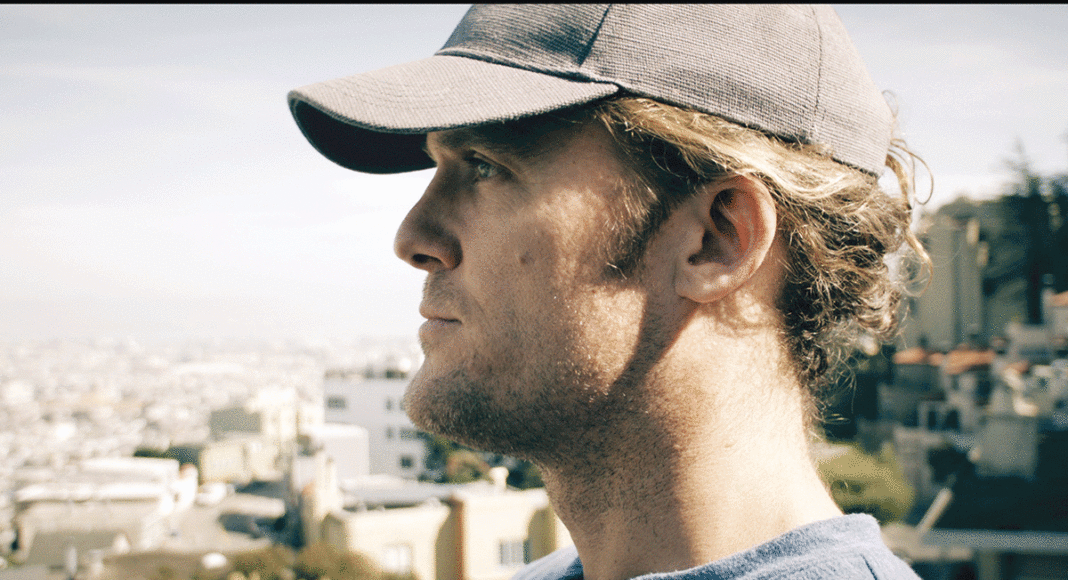There’s a scene in the documentary Cowspiracy where director Kip Andersen charges into the lobby of the San Francisco Greenpeace office and asks the woman at the counter to see the program director. Andersen has been trying to get an appointment for two months, and wants to know why Greenpeace doesn’t focus on animal agriculture as the leading cause of greenhouse gas emissions. Greenpeace’s PR person comes out to shoo him away, saying representatives will be in touch.
Cowspiracy, which got some star power from executive producer Leonardo DiCaprio, has become the most popular and arguably most controversial pro-vegan documentary of all time. That’s at least partially because Andersen doesn’t just take on the obvious targets: healthcare, pharmaceutical companies and factory farming. This is Greenpeace, after all—the same Greenpeace whose members routinely scale famous monuments to display climate change banners and put themselves in the path of whalers. But the former Boulder Creek resident is uncompromising, leaving no cow unturned—a man who, early in our interview, asks “Can you be an environmentalist and still eat meat?”
Andersen has taken the same confrontational approach with his follow-up, What the Health, in which he investigates the healthcare and pharmaceutical industries’ connection to our nation’s reliance on meat, dairy and processed food consumption. What the Health will be screened in Santa Cruz on May 17 followed by a Q&A with the filmmaker.
When you’re uncovering “one of the biggest health cover-ups in the history of mankind, how it got to be so, and what the solution is,” you’ve got to take risks, says Andersen of his scorch-earthed tactics.
He spent hundreds of hours researching, sending emails, making calls and showing up at American health nonprofits, only to have his questions ignored, he says. He claims the information he did find was tainted by questionable studies, media hype and political interference.
“It’s tough because with medical studies you have to dig really deep and go back to see how they were funded,” says Andersen. “A lot of times it’s like ‘Oh, that’s funded by the meat and dairy industry.”
Like the Siri-Tarino study, says Andersen, which was headed by Robert Krauss and sparked the “butter is back” craze in 2010 when it concluded that there was no significant evidence to connect saturated fat with an increased risk of coronary heart disease or cardiovascular disease, despite studies since 1965 saying the opposite.
When the study was repackaged and released in 2014, the chair of Harvard’s nutrition department called it “seriously misleading,” saying it contained “multiple errors and omissions,” and called for the paper to be retracted. Turns out, says Andersen, Krauss had been funded by the National Dairy Council since 1989, and received support from the National Cattlemen’s Beef Association and the Robert & Veronica Atkins Foundation (if you remember the Atkins Diet from the ’90s, it was pretty big on meat intake).
“That’s what they want: ‘doubt is our product,’” says Andersen, quoting the 1969 PR proposal from Brown & Williamson, a then-subsidiary of British American Tobacco, reviewing the state of the tobacco industry’s public relations and proposing next steps. “It’s formulated, it’s perfected. All you have to do is introduce doubt, and then people say ‘Oh well, I don’t know what to believe,’ and then move on with doing what they want to do.”
With the deep pockets and long-standing influence that these industries have, says Andersen, it’s no wonder that when we think protein, we think meat, and when we think calcium, we think milk.
A plant-based diet can offer those nutrients and more, he says, but it’s the combination of mass marketing, popular myths, and enough doubt to not know the difference that keeps people reaching for burgers instead of tofu, tempeh and seitan.
Cowspiracy has been called “vegan propaganda” by critics, who claim that it’s unrealistic to transition the global population to veganism, and that some of the facts used in the film were over-hyped. Andersen sighs.
“When Leonardo DiCaprio came on board, we had two of his lawyers down our throats for 10 months making sure we had every single fact sourced, at least one or two sources,” says Andersen. “It’s all his image—he’s worth, what, a billion dollars? It is the most lock solid.”
He’s also responding to the backlash surrounding the 2006 UN study cited in Cowspiracy, which states that 18 percent of greenhouse gas emissions comes from meat production. In 2010, a UC Davis researcher criticized the study’s methodology, calling the numbers into question.
When asked if he’d wished they had included a bit of that controversy in the film, Andersen says yes—there is a long footnote on the website’s fact page—but he claims that the number should actually be far higher, not lower.
“If you talk to someone who truly does not have any affiliation with the meat and dairy industry—which those FAO numbers do,” he says, referring to the 18 percent, “Then the number is anywhere from 35 to 51 percent.”
Andersen’s referring to the Worldwatch “Livestock and Climate Change” report, which asserts that the 2006 UN number should be something closer to 51 percent.
But the hullabaloo doesn’t matter to him, says Andersen, because at screenings across the globe, he’s met receptive audiences.
“We’re in a paradigm shift, I feel, as a human species,” says Andersen. “Everybody really wants to know what’s going on—they’re hungry for it—to realize that we can know the truth and move on, not rely on these powers that be and cross our fingers that they’re telling the truth.”
Info: 7 p.m. Wednesday, May 17. Nickelodeon Theatre, 210 Lincoln St., Santa Cruz. Tickets available at the door 6-6:30 p.m. and online. 722-3253. tugg.com. $10.
What the Health is also available for download at whatthehealthfilm.com.














Losing weight had always been a struggle, until I discovered this remarkable product. From 75kg to a lean 55kg, I feel like a brand-new person. click here to begin your journey to a healthier you!